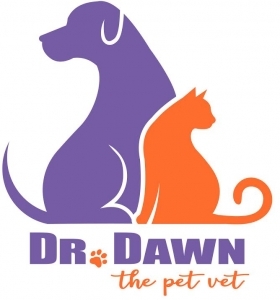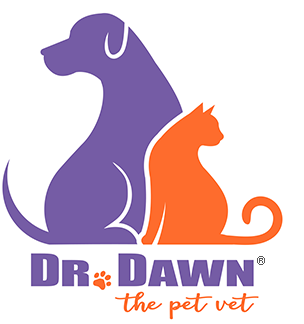Below is an article from NYMag.com, posted this week. It brings up valid concerns about the further effects of the human anti-vaccination movements, and how they might affect the veterinary world, the spread of diseases that we have under check with current vaccines, and what it might mean for your pet. I copied it verbatim, because it is interesting, concise, and brings up some food for thought, both for parents and pet owners alike.
February 4, 2015
Is the Anti-Vaccination Movement Spreading to Pet Owners?
The measles outbreak in the U.S. has topped 100 cses so far this year, according to (http://www.cdc.gov/measles/cases-outbreaks.html) the Centers for Disease Control and Prevention, with a large number of those cases suspected to stem from a single visitor to the Disney theme parks in California. Many physicians have pinned the larger blame on lower immunization rates as a result of vaccine denialism. But animal doctors, who say the rejection of vaccines is spreading to the veterinary world, are less worried about what happened in a certain Mouse’s house than about the dogs and cats they see every day.
The vast majority of puppies taken to the vet in the U.S. receive a suite of shots, including a vaccine against a highly contagious viral illness known as “canine distemper,” which causes potentially fatal respiratory and gastrointestinal distress in dogs. Christopher Brockett, president of the New York State Veterinary Medical Society, says he has “definitely” seen pet owners deciding to skip vaccines more frequently. When it comes to illnesses such as distemper in dogs, that might pose a risk. “The fewer animals that are getting the vaccine, the greater the likelihood that you’re going to have a firestorm if something that is highly communicable comes along,” Brockett says.
Before scientists developed a vaccine against canine distemper in 1929, the virus claimed lives of many dogs – foxhounds seem particularly vulnerable to it- and was also a “menace at the new dog shows which became popular from the mid-nineteenth century,” (http://www.ncbi.nlm.nih.gov/pmc/articles/PMC3014013/) according to historians. Yet, even though there is a vaccine, distemper is far from a thing of the past. Last year, an outbreak among dogs in Texas (http://www.newschannel10.com/story/27532511/2014/12/02/outbreak-of-deadly-canine-disease-worsens) made news, with veterinarians there noting that what was once a rare illness has surged in numbers this year.
Brennen McKenzie, a veterinarian blogger and past president of the Evidence-Based Veterinary Medicine Association says that he has seen an uptick in pet owners seeking to skip vaccinations for their pets against distemper and other ailments such as parvovirus, a potentially lethal disease in dogs that can cause symptoms such as vomiting and lethargy. McKenzie says that he is also aware of cat owners who have become wary of vaccines. “I would say, from a subjective personal point of view, that often issues in veterinary medicine spill over from human medicine,, and over the last 10 or 15 years there has been an increase in mostly unfounded concerns about vaccine safety for people- and that, I think, has raised people’s awareness and level of concern about vaccinations for their pets,” he explains.
Unfortunately, hard numbers are difficult to come by. When it comes to pets, “there really isn’t any way of tracking vaccine compliance rates,” McKenzie says. Only rabies vaccines are subject to any real government interest or oversight-and the compliance among pet owners remains nearly universal in that case. But other pet vaccines are overseen largely by counties or municipalities, and so there’s no central repository for records detailing vaccination rates.
It’s not yet clear whether vaccine hesitations among pet owners have influenced patterns of diseases such as parvovirus and distemper. However, health officials have suggested that increased outbreaks of illnesses such as measles (http://www.reuters.com/article/2008/08/21/us-measles-usa-idUSN2146685120080821.) in people are related to unfounded fears about certain human vaccines.
A few veterinarians hold views about pet vaccines that have stirred concern among their peers. Rosemary Manziano, a homeopathic veterinarian in New Jersey, advocates that in lieu of vaccinating your dog against distemper, you can simply take your pet to the park. “I tell them to pick a park where there are a lot of animals around,” she explains, advising owners to wait”after the dogs ar 12 weeks old, when their immune systems are fully functioning.”
It’s a notion eerily similar to the “pox parties” thrown by vaccine denialist parents who refuse to immunize their children against dangerous ailments such as measles and chickenpox, opting instead to organize get0togethers to expose their toddlers to other youngsters with risky viruses in the hopes that this will stimulate their kids to produce natural immunity. Manziano got the idea about a dozen years ago, when she heard of an outbreak of canine distemper among raccoons in New Jersey and started sending her clients there to let their dogs roam in the same areas, but only for shout bouts. “I just told people to go for ten minutes and then get back in the car and drive away,” she says. “It’s as simple as that.” (Manziano notes that she routinely vaccinates animals against rabies, as that is the law.)
Mainstream veterinarians see no scientific basis for Manziano’s claims. “It is impossible for a puppy to go to the dog park and pick up distemper in such a manner that would only induce natural immunity but not put that same pup at extreme risk of disease,” says Tami Pierce, a veterinarian and chief of the community medicine service at the University of California Davis Veterinary Medical Teaching Hospital. Worse, she says, these unvaccinated pets could put other dogs at risk. One study (http://www.ncbi.nlm.nh.gov/pubmed/10831852) found that animals can shed the virus that causes distemper even if they lack symptoms of illness.
Yet Manziano is not alone in her philosophy that dog walks could replace dog vaccines, and that worries McKenzie. “I’m aware that there are veterinarians who are making very non-mainstream recommendations about vaccines and I want to make sure that a more rational science-based perspective is available to people when they’re out there Googling this stuff,” he says. “Everyone is entitled to their own opinion, but not their own facts.”
Some food for thought.
Dr. Dawn
Please share and subscribe here






